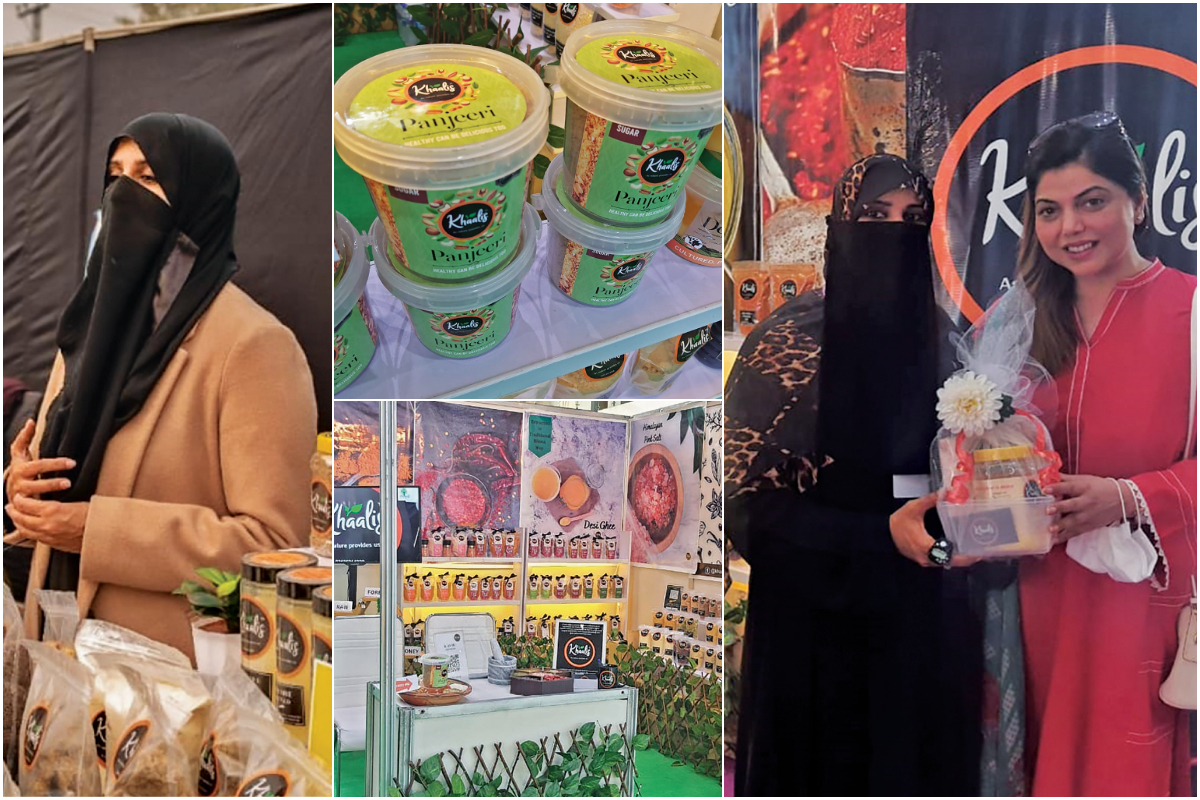
Reviving time-tested tastes
Acknowledging leadership roles that many Pakistani women play in food business
On Saira Nazar’s lawns, lemon trees had stood for years, consistently bearing a big crop. The majority of the left was allowed to mature, fall, and rot.
Saira has been making money from the same trees for the past year by making lemonade from her own lemons and selling it to her family, friends, and other customers. As a result of the lemonade’s popularity, she also gives her customers tomato chutney that she makes according to a traditional family recipe.
With their innovative food concepts and local, regional, and international cuisines, a good tribe of female entrepreneurs have upended the market.
Fozia Badar is one of them. She never intended to be a cook or a food vendor as an adult, but her heart was in food, just like everyone else’s. Fozia Badar, the founder of a cuisine company in Lahore, launched the business two and a half years ago.
“Well, the worst financial troubles forced me into entrepreneurship,” says the owner of Granni’s Kitchen, a startup aimed at providing foodies with dried and organic species.
“Those were times when jobs were few; my husband’s work had been lost, and those awful, worst days pushed me to the point where I began to consider creative ideas for starting my own business.”
According to her research, Pakistani spices are not welcome abroad. Reason: They do not meet international lab test levels as spices are cultivated, processed, and then sold.
Pakistan is one of the world’s subtropical countries, with terrible climatic conditions. Hot and humid storage conditions encourage fungal growth, which leads to the production of aflatoxins and fungus in food items.
“That is totally attributable to an inefficient drying procedure.”
The thought boosted her desire to continue her business of supplying people with dehydrated spices.
She began her firm on a meagre budget of Rs30,000, with the help of her husband. The first shipment of turmeric powder was made in their living room. Their business development goals concentrated their attention over time, and the business is today a roaring success.
“It took about three months to turn my company idea into a reality, and I achieved it with the aid of my family.” She has now developed a strong network of food providers, food enthusiasts, food growers, and food purchasers.
“A time-honoured method for conserving and utilising plants for flavouring food for medical purposes, drying spices and herbs is also a great way to celebrate dinner at the table,” she says. The process of dehydration is carried out in a hot-air dryer.
“The procedure aids in controlling moisture in spices and herbs, which are first rinsed and then dried. This extends their shelf life and maintains their nutritional value.
However, Rabia Usman, a Khalis Foods vendor, does not think that technology should be used while dealing with food. She makes and sells homemade lemonades, pickles, panjeri, organic ghee, spices, and organic grains.
“I aim to keep healthy eating above everything else since it’s time to be informed of what goes into our nourishment,” adds Rabia. “When we manufacture anything, we use the same ingredients that we use for our own food.”

What is your unique selling point?
“No uniqueness,” she quips. Her products don’t contain any colours, preservatives, or additives.
We try to keep our food as basic as we can, she explains.
She was inspired by the group of grandmothers.
“Our grandparents consumed food that had been prepared at grindstones; they remained healthy simply because their diet was pure. I’m currently attempting to resuscitate that.
She began her career last year when her kid developed hepatitis, and patients are expected to eat food that has been thoroughly cooked. She started preparing spices and food ingredients at home as a result of this.
Although the term “Khalis food” may seem somewhat restrictive, the menu she is offering is extensive and wonderful. Her company is on the upswing.
The Women Resource Centre and Incubation in Lahore trained Rabia and Fozia for a business career.

How about the cost?
According to Fozia, “the dehydrated spices provide flavour to cuisine, but at a price.”
Because of the small amount of work, “yes, our prices are competitive,” responds Rabia.
We have two main issues because we offer perishable goods: first, it might be difficult to estimate demand, and second, it can be difficult to manage the freshness and transportation of perishables to markets.
What difficulties do they encounter?
According to Fozia, the main problem for her is that the general public is not aware of how to eat healthily. She has customers from all around Punjab who patronise her Lahore-based firm. Rabia, who owns a company in the town of Sahiwal, believes that the major issue is her gender and incapacity to continue driving.
“I encounter several hurdles as a businesswoman; our society is gradually acknowledging the leadership position that women play in business.”
Lack of resources to expand their firm to the national level is a prevalent issue for them.
Rabia demands that the government offer soft and easy-to-get loans to women.
“In addition, training should be given to us on how to strike and capture the export field. We need direction when it comes to exporting our goods. I have no doubt that our goods will appeal to the tastes and affections of people everywhere.”
Catch all the Urban Insight News, Breaking News Event and Latest News Updates on The BOL News
Download The BOL News App to get the Daily News Update & Live News.












 Read the complete story text.
Read the complete story text. Listen to audio of the story.
Listen to audio of the story.